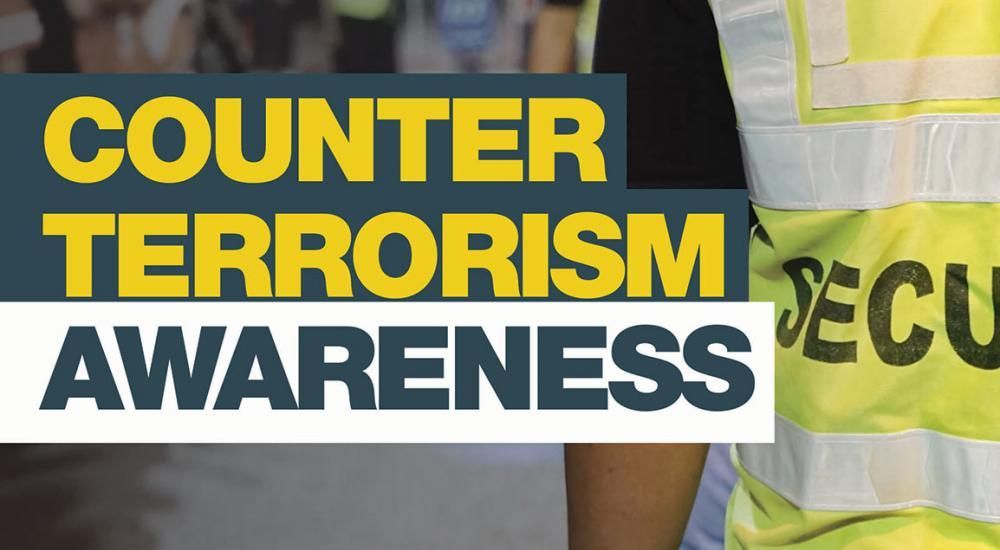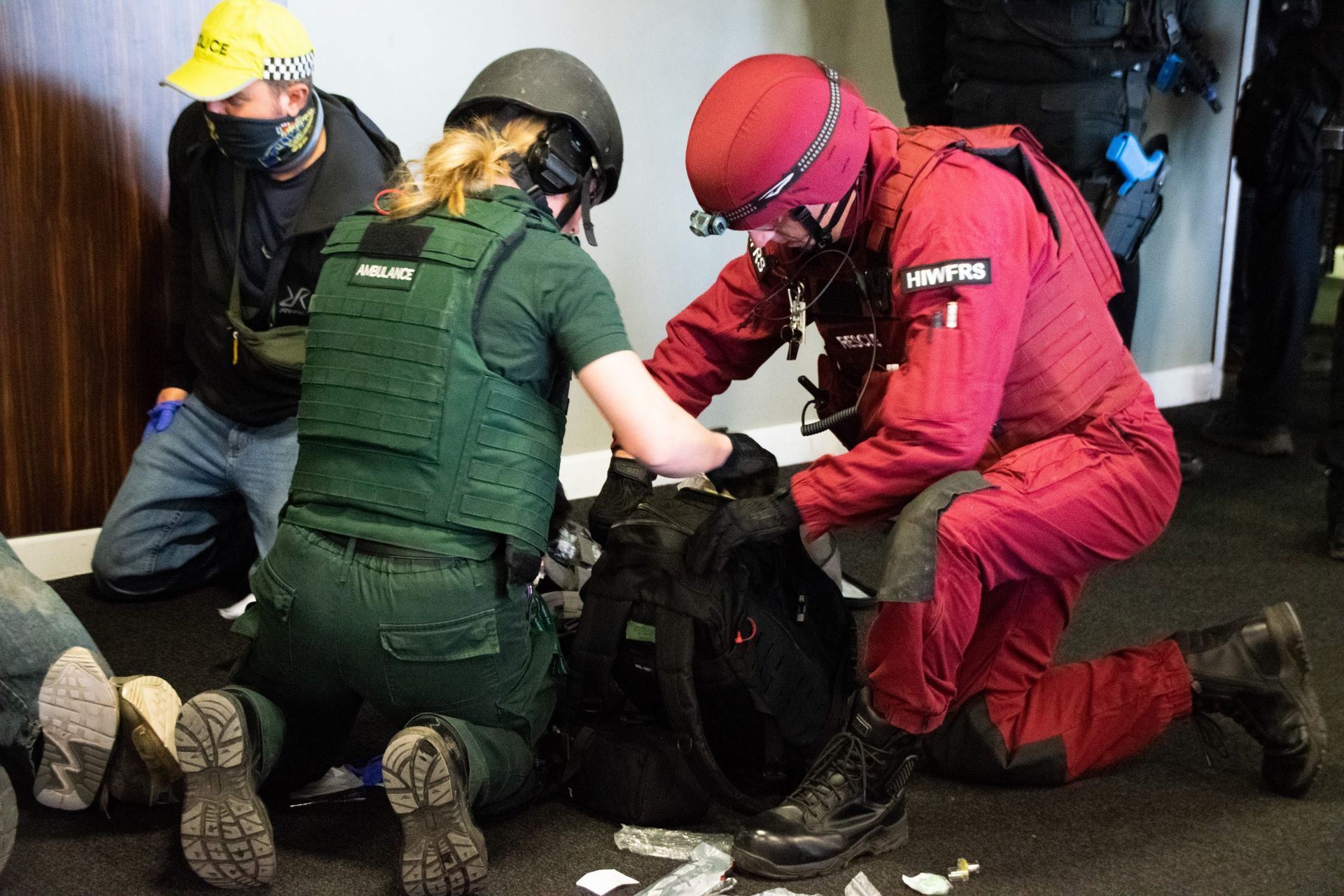Welcome to Safe Pulse! This isn’t a space for endless updates or fleeting trends. When I post here, it’s because there’s something truly important to share—something that matters. Whether it’s an insight, a story, or a moment of inspiration, Safe Pulse is all about meaningful content that resonates.
Stay tuned, and thanks for being a part of this journey.

The security industry plays a crucial role in safeguarding public spaces and preventing terrorist attacks. However, recent discussions have raised concerns about whether security officers are effectively applying their counter-terrorism training in real-world scenarios. The Training Landscape: Security officers undergo rigorous training programs designed to equip them with the skills needed to identify and respond to potential terrorist threats. These programs cover a range of topics, including recognizing suspicious behavior, understanding hostile reconnaissance, and implementing emergency response protocols. Despite the comprehensive nature of these courses, there are growing concerns about the practical application of this training. Challenges in Implementation: One of the primary challenges is the gap between theoretical knowledge and practical application. While security officers may excel in classroom settings, translating this knowledge into real-world situations can be more complex. Factors such as high-stress environments, the unpredictability of terrorist tactics, and the need for quick decision-making can hinder the effective implementation of training. Quality vs. Quantity: Another issue is the emphasis on quantity over quality in counter-terrorism training. With the increasing demand for security personnel, there is a tendency to prioritize the number of training sessions delivered rather than the quality of these sessions. This approach can lead to a superficial understanding of counter-terrorism measures, reducing the overall effectiveness of security efforts. Recommendations for Improvement: To address these challenges, several recommendations have been proposed. These include: Enhanced Practical Training: Incorporating more hands-on exercises and simulations to better prepare security officers for real-world scenarios. Continuous Evaluation: Implementing structured evaluation mechanisms to assess the effectiveness of training programs and identify areas for improvement. Collaboration and Knowledge Sharing: Encouraging collaboration between security agencies and other stakeholders to share best practices and learn from past experiences. Focus on Adult Learning Theory: Tailoring training programs to accommodate the skills and experiences that security officers bring to the table, ensuring that learning is relevant and engaging. Conclusion: While the security industry has made significant strides in counter-terrorism training, there is still room for improvement in ensuring that this training translates into effective practice. By addressing the challenges and implementing the recommended improvements, the industry can better equip security officers to protect public spaces and prevent terrorist attacks. What are your thoughts on this issue?

In an era where large-scale events are marred by the looming threat of terrorism, safety and security measures have had to adapt and evolve. One group that plays a crucial yet often underappreciated role in maintaining the safety of such events is the event medics. Trained to handle medical emergencies, these individuals are ever-present on the ground, equipped with knowledge and skills to address health crises. But in a world where the unexpected can happen in the blink of an eye, is it time to expand their training to include in-depth counter-terrorism measures? The Role of Event Medics At concerts, sports events, festivals, and public gatherings, medics are a vital part of the event staff. Their primary role is to provide immediate medical assistance to anyone in need, which ranges from handling minor injuries to offering life-saving interventions. However, their constant presence and close proximity to the crowd provide them with a unique vantage point, one that could be invaluable in the context of counter-terrorism. A New Paradigm: Event Medics as a Security Asset Security staff at events are trained to spot suspicious behavior, assess potential threats, and respond accordingly. Event medics, with the right training, can augment these efforts. With specialized counter-terrorism training, medics can be taught to recognize the signs of potential terrorist activities, such as unusual behavior, unattended packages, and suspicious interactions. Having an additional set of eyes that are trained to look beyond medical issues can act as a force multiplier for security teams. This approach not only increases the number of personnel aware of and prepared to address security threats but also integrates a multi-faceted strategy into the event's overall security plan. Benefits of Counter-Terrorism Training for Event Medics Enhanced Situational Awareness: Medics, trained in recognizing and understanding potential threats, can identify suspicious activities early. This proactive approach ensures quicker response times and the potential to thwart harmful actions before they escalate. Holistic Safety Approach: The integration of medical and security training promotes a comprehensive safety culture. This dual training fosters a heightened sense of responsibility and vigilance among event staff. Increased Collaboration: Counter-terrorism training encourages better communication and collaboration between medics and security staff. This collaboration ensures a cohesive response during emergencies, optimizing resource utilization and enhancing overall event safety. Empowered Personnel: Medics equipped with counter-terrorism skills are better prepared to protect themselves and the attendees. This empowerment boosts confidence and readiness to tackle unexpected challenges. The Challenge of Implementation While the benefits are clear, the implementation of counter-terrorism training for medics presents challenges. Training programs need to be carefully designed, taking into consideration the primary role of medics and ensuring that the additional training does not compromise their medical responsibilities. Moreover, these programs would require significant investment in time, resources, and ongoing education to keep up with evolving threats. Conclusion: A Step Towards Safer Events In conclusion, arming event medics with in-depth counter-terrorism training is a proactive measure that can significantly enhance event security. As highly trained professionals who are already attuned to the dynamics of large gatherings, medics can play a pivotal role in identifying and mitigating potential threats. Integrating counter-terrorism training into their skill set is not just an added advantage, it is a necessary evolution in the ever-changing landscape of event safety. With the combined efforts of medics and security teams, we can move towards hosting safer and more secure events for all.

In an era where safety and security at events are paramount, the role of event security professionals has become increasingly complex and demanding. The Joint Emergency Services Interoperability Principles (JESIP) training program has emerged as a crucial tool for ensuring that security personnel are equipped to handle emergency situations effectively. Here's why JESIP training is vital for the event security industry. Effective Multi-Agency Coordination One of the primary objectives of JESIP training is to improve the coordination and communication between various emergency services such as police, fire, and ambulance. In the event of an emergency at a large-scale event, swift and seamless collaboration among these services can make the difference between life and death. JESIP training provides a standardized framework that helps event security personnel understand the protocols and procedures of different agencies, ensuring that they can work together efficiently. Enhanced Decision-Making Skills In high-pressure situations, the ability to make quick and informed decisions is crucial. JESIP training focuses on enhancing the decision-making skills of security personnel by teaching them how to assess situations rapidly and accurately. This training includes scenario-based exercises that simulate real-life emergencies, allowing participants to practice and hone their decision-making abilities in a controlled environment. Improved Communication Clear and effective communication is essential during any emergency. JESIP training emphasizes the importance of using common terminology and clear language to avoid misunderstandings and ensure that all parties are on the same page. This training also covers the use of various communication tools and technologies, helping security personnel stay connected and relay critical information efficiently. Comprehensive Risk Assessment A vital component of JESIP training is learning how to conduct thorough risk assessments. By identifying potential hazards and vulnerabilities, event security professionals can develop proactive measures to mitigate risks. This training ensures that security personnel are well-versed in assessing the likelihood and impact of various threats, enabling them to implement appropriate safeguards to protect event attendees. Building Public Confidence When event attendees see that security personnel are well-trained and capable of handling emergencies, it boosts their confidence and trust in the event's safety measures. JESIP training ensures that security teams are prepared to respond effectively to any situation, providing peace of mind to both event organizers and attendees. This increased sense of security can enhance the overall event experience and encourage repeat attendance. Conclusion In conclusion, JESIP training is an invaluable asset for the event security industry. It equips security personnel with the skills and knowledge needed to coordinate effectively with emergency services, make informed decisions, communicate clearly, conduct comprehensive risk assessments, and build public confidence. As the demand for secure and safe events continues to grow, JESIP training will remain a vital tool for ensuring that event security professionals are prepared to meet the challenges of today's dynamic and complex environments. By investing in JESIP training, event security teams can enhance their capabilities and contribute to the overall safety and success of any event.



